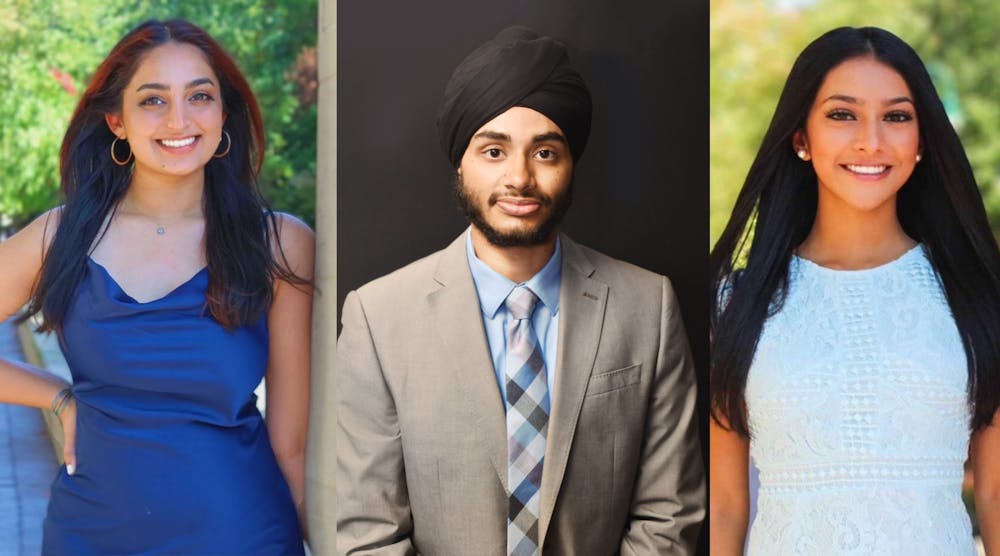On April 15, eight people were shot and killed at a FedEx facility in Indianapolis. Four of the individuals were Sikh people. According to the Gun Violence Archive, more than 150 mass shootings have already occurred in 2021.
Officials at the Indianapolis shooting speculate the incident to have been racially motivated. The shooting occurred during the week when Sikhs celebrate Vaisakhi, a holiday marking the birth of Sikhism as a faith.
IU junior Ravleen Ahuja, who is co-president of the Sikh Student Association, said she was shocked and confused when she first learned about the shooting.
“My initial reaction was before I was upset or before I was angry, just shocked and confused as to what triggered this person to want to do that, why would they inflict such violence,” Ahuja said.
Related: [‘What more can we take?’: Unity, courage, action urged at Indianapolis community vigil]
According to their instagram page, The Sikh Student Association was founded in 2019 as a space where Sikh students can feel welcome and safe. Ravleen was one of the founders of the association along with sophomore Taveen Saran, co-president of the Sikh Student Association.
“Some members of our community were just doing their daily routine,” Saran said. “It's just scary to know that they were just going into work or they're leaving work and then they were targeted and killed at their workplace.”
This isn’t the first time there has been a violent attack against Sikhs in the U.S. In 2012, 6 people were shot and killed at a Sikh temple in Wisconsin.
“My sister and I were talking about how we didn't understand the whole concept of why someone would do this, but now that we're older we do understand and it's just truly heartbreaking,” Saran said.
Related: [IMPD has identified the 8 killed in Indianapolis. At least 4 were Sikhs, coalition says.]
The Sikh Coalition, a Sikh-American advocacy group, has received hundreds of reports of violence and discrimination against Sikh-Americans since 9/11, according to a factsheet written by the coalition. The FBI reported that from 2017 to 2018, hate crimes against Sikhs rose from 20 to 60 in the U.S.
“Right now I'm really upset and it's a really horrible thing, especially because nothing is particularly being done about it,” Ahuja said. “There's nothing being done in terms of gun reform.”
The Sikh Student Association and the Sikh student community as a whole took some time to process and mourn, Ahuja said. The Sikh Student Association hosted a vigil Sunday for the victims of the shooting.
Saran said that the vigil wasn’t just for the Sikh victims but for the other victims who were injured or who had lost their lives.
“This vigil is for everyone, so this is also for the entire state of Indiana that felt the same pain that we have felt because their fellow Hoosiers were brutally shot for no reason,” Saran said.
Related: [Bloomington Mayor John Hamilton expresses condolences for Indianapolis community after mass shooting]
Sikh senior Simran Darar said it’s important for people to educate themselves about those who practice Sikhism.
“You know, educate yourself on a religion,” Darar said. “ If you go around and you ask a typical American [about Sikhism], you’ll notice that probably five times out of 10 they wouldn't know.”
According to a survey by the National Sikh Campaign done in 2015, of the 1,144 non Asian-Americans surveyed, only 11%of the respondents said they knew a Sikh person. The study also found that 60%of the respondents said they knew nothing about Sikhism.
Indiana Gov. Eric Holcomb released a statement saying he is working with government officials to offer resources and assistance during this time. President Joe Biden also released a statement following the tragedy saying he is working with the Department of Justice to protect Americans from gun violence.
“The United States prides itself on protecting their people and that whole sovereign-type idea,” Ahuja said. “If they're not protecting their people, how can we move forward as a nation?”




